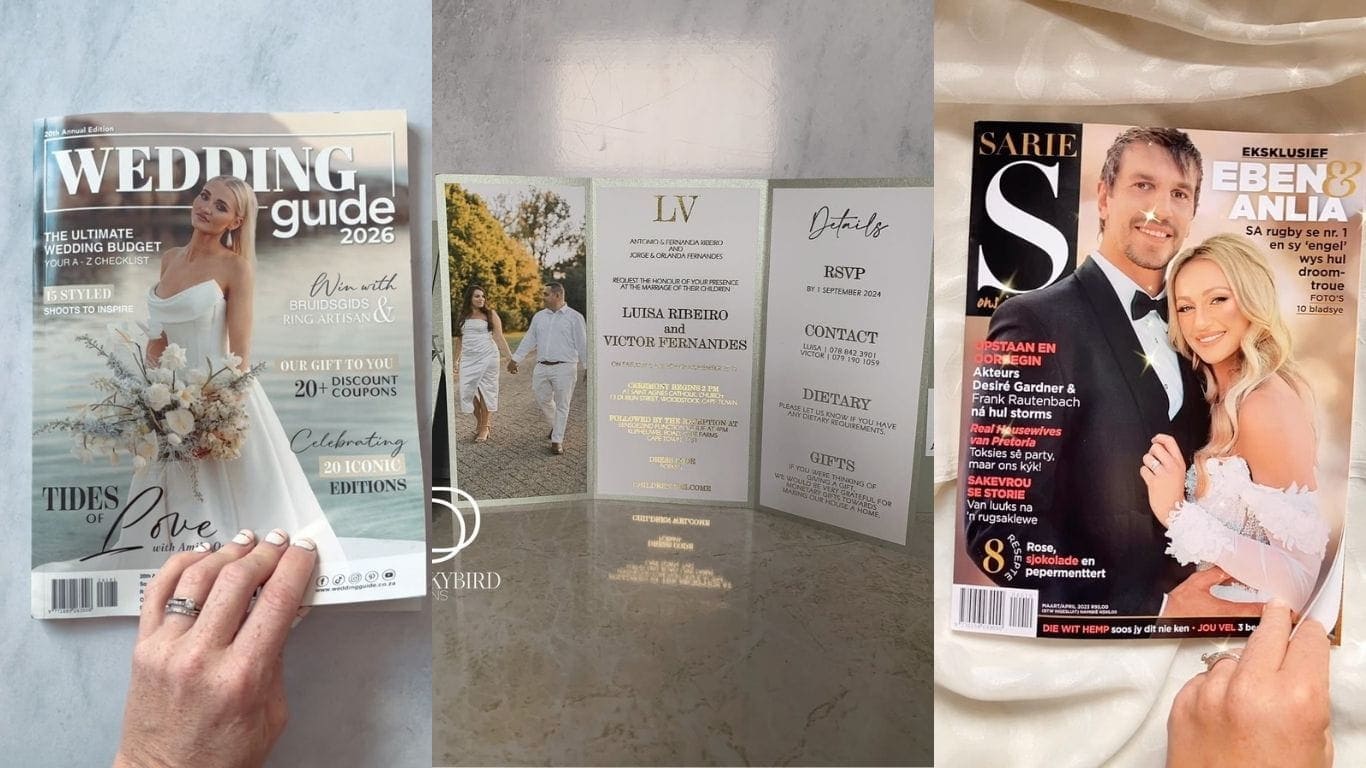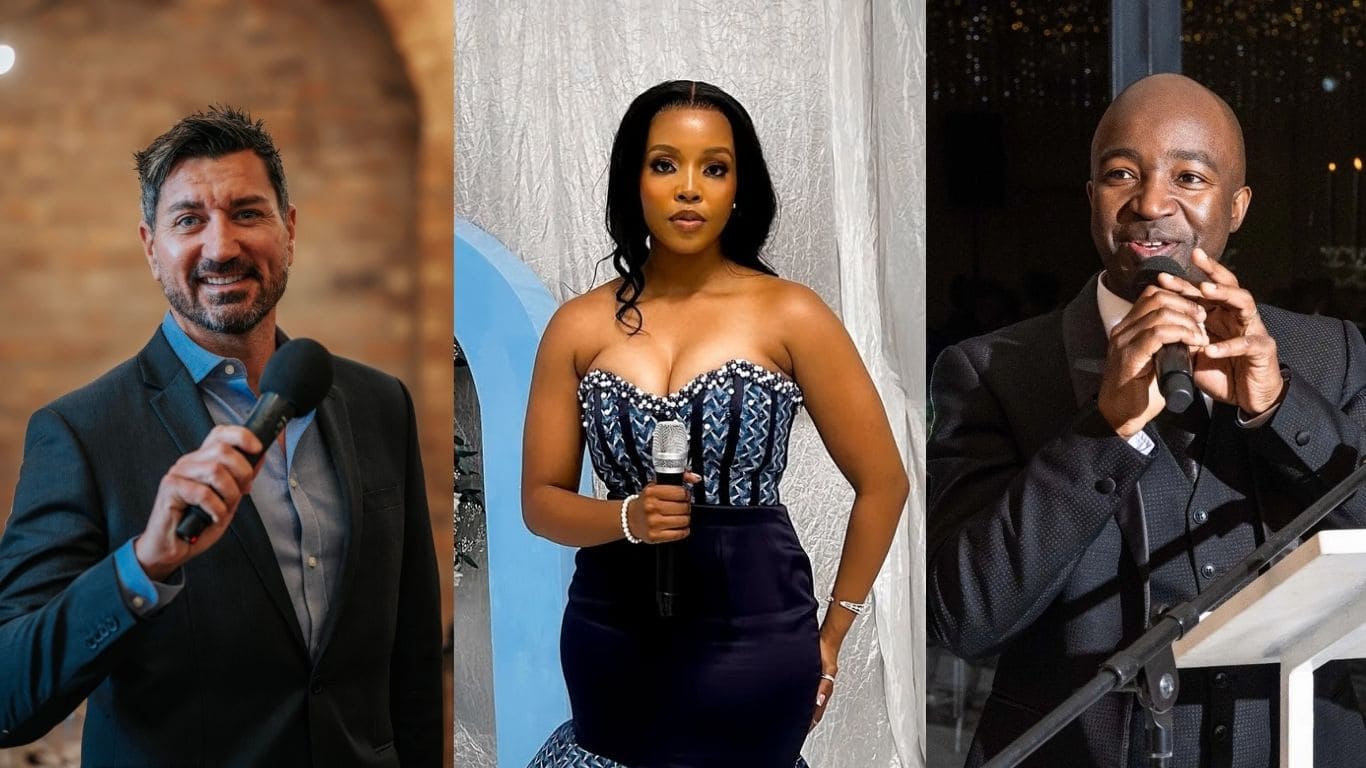Every couple in South Africa needs a marriage officer regardless of the type of marriage: civil marriages, customary marriages, and civil unions.
South Africa, the sixth-largest African country, has been the best destination for tourists and a lot of people who are prepared to walk down the aisle. The nation promises beautiful and serene landscapes that create a captivating backdrop for couples’ special days.
Often shortened as SA, the nation rich in cultural diversity recognizes three distinct types of marriages under its legal framework: civil marriage, civil unions, and customary marriages.
In this in-depth guide, we embark on a journey to unravel the intricacies of each marriage type, shedding light on their legal implications, cultural roots, and the choices available to couples navigating the path of matrimony.

Unveiling the diversity: A comprehensive exploration of marriage types in South Africa
Marriage, also called matrimony or wedlock, may be defined as a legally recognized, life-long, voluntary union between a man and a woman, or two people of the same sex.
According to statistics by Stats SA, a total of 111,415 marriages were registered in South Africa in 2021. The recent data released in February 2023 indicates a consistent decline in marriage rates in South Africa over the past decade. The source added that while marriages in SA decreased, divorces increased by 13.1% since 2020. 18,208 divorces were granted in 2021.
While the number of marriage registry entries may seem low, there isn’t a year that the country doesn’t record more than thousands of ceremonies. With this, it is right to know the different types of marriages the country recognises.

What are the types of marriages in South Africa?
There are three main types of marriages recognised by the legal system (the constitution) in South Africa. These are:
- Civil Marriages
- Customary Marriages and
- Civil Unions.
The solemnisation and registration of these marriages are managed by the Department of Home Affairs.
Civil Marriage
Civil marriage stands as the first and most common form of marital union in South Africa, governed by the Marriage Act of 1961. According to Martinvermaak, around 130,000 people get married each year in South Africa this way.
This type is a legally acknowledged relationship between two people. It is a secular, legal marriage officiated by an authorized marriage officer, typically taking place in a registry office or a venue licensed for marriages.
Key aspects include:
- Requirements: Exploring the legal prerequisites such as age, consent, and capacity.
- Solemnization Process: Detailing the steps involved in obtaining a marriage license and the role of marriage officers.
- Legal Rights and Responsibilities: Unveiling the legal implications, including inheritance and spousal rights.
Choosing this type of marriage comes with three distinct types as well. They are:
- Marriage In Community of Property (a sharing of assets)
- Marriage Out of Community of Property, Subject to the Accrual System.
- Marriage Out of Community of Property, with the Accrual System’s Excluded
In South Africa, it is assumed that civil marriage is “in community of property., This means the couple’s assets and debts are added together and split equally, unless something different is written in an antenuptial agreement.
If an antenuptial agreement states that the marriage will be “out of community of property,, it signifies that the couple’s assets and liabilities will be kept separate.
The “accrual system,, which defines how the couple’s joint assets will be distributed in the event of a divorce or the death of one spouse, may also be specified in the antenuptial contract.
Note: You must have an antenuptial contract prepared by an attorney who is a notary public.
These contracts are then sent to the Deeds Office for registration. Once that is complete, they are fetched from the Deeds Office and handed to you.
Some advantages of civil marriages are:
This marital regime grants partners certain legal benefits. These benefits can only be awarded to couples who have entered into a legally recognised civil marriage.
You may have inheritance rights, in that you may have the right to inherit from your spouse after they die. But remember, you both have the freedom of testation to leave your entire estate to someone else or make provision for others in your will.
You must support each other depending on the needs of your spouse.
When a spouse dies, you may claim spousal maintenance from the deceased’s estate.
Some disadvantages of civil marriages are:
The main disadvantage of a Civil Marriage is that it’s not nearly as easy to terminate.

Customary Marriages
Customary, also called traditional, marriage is the second most popular type of marriage in South Africa with 2,789 unions registered by the Department of Home Affairs.
Rooted in cultural traditions, customary marriages hold profound significance for many South Africans. Governed by the Recognition of Customary Marriages Act of 1998, these unions reflect the diverse cultural tapestry of the nation:
- Cultural Elements: Exploring customary practices, including lobola (bridal dowry), rituals, and celebrations.
- Legal Recognition: Discuss the legal framework recognizing customary marriages and the importance of registration.
- Challenges and Controversies: Addressing any challenges or controversies related to the recognition of customary marriages.
This type is recognized as valid if they follow the customs and traditions of the parties involved. These marriages may involve exchanging gifts or paying lobola (bride price) and may be conducted by a traditional leader or elder.
While the civil type is governed by the law, the customary comes into place according to indigenous African customary law.
While it is right to register your customary marriages at the Department of Home Affairs, it’s not necessary for the validity of the marriage, and failure to so do does not render the marriage void.
The Customary Marriages Act came into power in 1998. It is a South African statute whereby marriages performed under African Customary Law, including polygamous marriages, are now recognised as legal marriages.
The participating parties must be competent to marry each other. This simply means that they must not be blood relatives also, that neither of the parties should already be in a civil marriage.
Similar to Civil Marriages, there are three different types of Marital Regimes available to Customary Marriage:
- Marriage In Community of Property
- Marriage Out of Community of Property , subject to the Accrual System
- Marriage Out of Community of Property , with the Accrual System’s Exclusion.
To be considered for a customary marriage, the couple involved must be over 18 years old and agree to be married by Customary Law. Along with this, their marriage must be celebrated as the customary law describes.
Interestingly, customary marriage is the only type of marriage that may be entered into by more than two individuals. Polygamous marriages are being recognised in African customary law.
- Monogamy is when one person marries one spouse.
- Polygamy is a relationship wherein more than one or two persons are involved.
- Polyandry is where a woman marries more than one man.
The default marital regime is that of a Marriage in Community of Property.
Civil Unions
Introduced in 2006, civil unions provide an alternative to traditional marriages, offering legal recognition to same-sex couples. Governed by the Civil Union Act, this type of union shares similarities with civil marriages but carries distinctive features:
- Legal Recognition: Discussing the legal acknowledgment of civil unions and their parity with civil marriages.
- Differences: Highlighting key variations between civil marriages and civil unions.
- Registration Process: Explaining the steps involved in formalizing a civil union.
These unions are performed by a marriage officer and offer the same rights and responsibilities as a civil marriage, with the main difference being its acceptance of all types of relationships.
According to Martinvermaak reports that the civil union is the least common type of marriage in South Africa with only 1,771 registered in 2021.
They are similar in some ways to a Domestic Partnership. However, they were initially intended as an alternative for protecting same-sex couples’ rights in circumstances when marriage was not yet available for them.
Civil unions are legally recognised arrangements that are similar to civil marriages. They were created initially to provide legal recognition for same-sex couples.
The default marital regime for civil unions that is applicable is a Marriage in Community of Property.
Similar to Civil Marriages, there are three different types of Marital Regimes available to Customary Marriage:
- Marriage In Community of Property
- Marriage Out of Community of Property , subject to the Accrual System
- Marriage Out of Community of Property , with the Accrual System’s Exclusion.
Comparative Analysis: A comparative analysis delves into the distinctions between civil marriages, civil unions, and customary marriages. This section aims to assist couples in making informed choices based on their beliefs, preferences, and legal considerations.
Legal Implications and Rights: Understanding the legal implications associated with each type of marriage is crucial. This section explores the rights and responsibilities concerning inheritance, property, and other legal matters for couples in each marriage category.
Challenges and Controversies: Examining any controversies or challenges associated with the recognition and practice of different marriage types. This includes ongoing debates or legal discussions that may impact couples’ choices.

How to get a marriage officer in South Africa
A Marriage Officer is empowered to legally solemnise and register marriages within South Africa. Wedding registrations are the legal component of a wedding. Your officiant will ensure your marriage is properly registered on the Home Affairs system.
Getting a marriage officer in South Africa involves a relatively straightforward process. Here are the general steps:
- Choose a Qualified Individual:
- Identify a qualified individual who can act as a marriage officer. This could be a designated religious leader or a magistrate.
- Contact the Chosen Officer:
- Reach out to the selected individual and confirm their availability and willingness to officiate your marriage.
- Confirm Eligibility:
- Ensure that the chosen marriage officer meets the eligibility criteria outlined by the Department of Home Affairs.
- Provide Necessary Information:
- Furnish the marriage officer with the necessary details about your wedding, including the date, time, and venue.
- Complete Legal Formalities:
- Work with the marriage officer to complete any required legal formalities. This may include providing proof of identity, submitting a notice of marriage, and fulfilling any specific requirements based on the type of marriage.
- Attend the Marriage Ceremony:
- On the agreed-upon date, both partners, along with witnesses, should attend the marriage ceremony, where the marriage officer will officiate.
- Signing the Marriage Register:
- Sign the marriage register in the presence of the marriage officer and witnesses. This step is crucial for legal recognition.
- Receive the Marriage Certificate:
- After the ceremony, the marriage officer will submit the necessary documents to the Department of Home Affairs to register the marriage. Once processed, you can obtain a marriage certificate.
It’s important to note that the specific steps may vary slightly based on the type of marriage and the preferences of the chosen marriage officer. Couples should communicate openly with the officer and ensure they understand the legal requirements for their chosen type of marriage.

How to become a marriage officer in South Africa
To become a marriage officer in South Africa requires several processes. These include:
- Eligibility:
- Ensure you meet the criteria set by the Department of Home Affairs to become a marriage officer, including being a designated religious leader or a magistrate.
- Application:
- Complete the prescribed application form available from the Department of Home Affairs or their official website.
- Documentation:
- Prepare and submit the required documents, which may include proof of your religious standing or magistrate status.
- Submission:
- Submit your application, along with the necessary documents, to the Department of Home Affairs.
- Approval:
- Await approval from the Department of Home Affairs. Once approved, you’ll be designated as a marriage officer.
- Responsibilities:
- Familiarize yourself with the responsibilities and legal obligations associated with being a marriage officer in South Africa.
Remember, the specific requirements may vary, so it’s advisable to consult the latest guidelines from the Department of Home Affairs or seek legal advice to ensure a smooth application process.
Frequently Asked Questions
Q1: What are the 3 types of marriage in South Africa? The three types of marriages in South Africa are civil marriage, civil unions, and customary marriages.
Q2: What is the difference between a civil union and a civil marriage in South Africa? While both civil unions and civil marriages provide legal recognition, civil unions are often chosen by same-sex couples, offering an alternative to the traditional concept of marriage.
Q3: What is the most common marriage type in South Africa? Civil marriage is the most common type in South Africa, governed by the Marriage Act of 1961.
Q4: What is the new marriage law in South Africa? As of my last update in January 2022, there were no significant new marriage laws reported in South Africa. Please verify with current legal sources for the latest information.
Q5: How many types of marriages are there in South Africa? There are three main types of marriages in South Africa: civil marriage, civil unions, and customary marriages.
Q6: Can a man marry two wives legally in South Africa? No, polygamous marriages are not legally recognized in South Africa under the Marriage Act. However, customary marriages may allow for polygamous unions under certain conditions.
Q7: What is a civil marriage in SA? A civil marriage in South Africa is a legally recognized union solemnized by an authorized marriage officer in compliance with the Marriage Act of 1961.
Q8: What is the quickest way to get married in South Africa? The quickest way is often a civil marriage, requiring minimal legal formalities. However, specific timelines may vary.
Q9: Which type of marriage is best? The “best” type depends on individual preferences, beliefs, and legal considerations. Couples should choose based on their unique circumstances.
Q10: How do I become a marriage officer in South Africa? To become a marriage officer, you typically need to meet eligibility criteria, complete an application, and submit required documents to the Department of Home Affairs.
Q11: Who qualifies as a marriage officer in South Africa? Qualified individuals, such as designated religious leaders or magistrates, may qualify as marriage officers in South Africa.
Q12: How much do marriage officers cost in South Africa? The cost of marriage officers may vary. Fees can depend on factors such as location, type of marriage, and the officer’s discretion.
Conclusion
In conclusion, South Africa’s marriage landscape is a reflection of its rich cultural mosaic and evolving legal framework. Civil marriages, civil unions, and customary marriages offer diverse options for couples, each with its unique characteristics and significance. Whether rooted in tradition or chosen for legal considerations, these marriage types contribute to the colorful tapestry of South African matrimony. Couples are encouraged to explore the options available, seek legal advice if needed, and embark on their marital journey with clarity and understanding.







